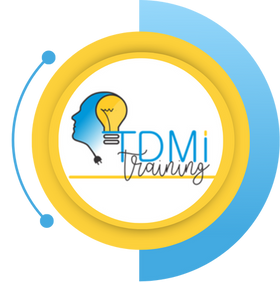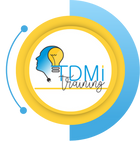Emerging Technologies in the Electrical Field
Emerging Technologies in the Electrical Field: What Electricians Need to Know for 2025
As the electrical industry continues to evolve, electricians must stay ahead of the curve to remain competitive and relevant. From smart grids to AI-driven tools, the technologies shaping the future of electrical work are nothing short of revolutionary. Whether you're just starting out in the trade or have years of experience under your belt, understanding the latest trends will help you stay informed and prepared for the future.
Here are the key emerging technologies electricians should keep on their radar in 2025:
1. Smart Grids: The Future of Power Distribution
Smart grids are transforming the way electricity is distributed and consumed. Unlike traditional power grids, smart grids use digital technology to monitor and manage the flow of electricity, allowing for real-time adjustments based on demand. For electricians, this means understanding new systems that integrate renewable energy sources, optimize energy distribution, and reduce outages. Electricians skilled in installing and maintaining smart grid infrastructure will be in high demand as more countries transition to this advanced technology.
Key Takeaway: Electricians should consider upskilling in areas like smart grid integration and energy management systems to meet the growing demand for this technology.
2. Energy Storage Systems: Bridging the Gap
With the rise of renewable energy sources such as solar and wind power, the need for efficient energy storage systems is greater than ever. Batteries that store excess energy for later use are becoming a critical component of residential and commercial electrical installations. Lithium-ion batteries, for example, are increasingly being used in homes with solar panels, enabling users to store power during the day and use it at night.
For electricians, knowing how to safely install and maintain these energy storage systems will become a valuable skill. It's also important to stay updated on the latest battery technologies and their safety protocols.
Key Takeaway: Be ready to offer your clients energy storage solutions that allow them to take full advantage of renewable energy sources, improving both efficiency and cost-effectiveness.
3. Artificial Intelligence and Automation: Smarter Tools, Faster Work
Artificial intelligence (AI) and automation are reshaping industries across the board, and the electrical field is no exception. New AI-powered tools and devices can now troubleshoot problems faster, predict maintenance needs, and even streamline the design of electrical systems. For example, AI-driven diagnostic tools can analyze data from electrical systems in real-time, helping electricians identify issues before they lead to major problems.
While these tools won't replace electricians, they will make the job easier and more efficient. By embracing AI and automation, electricians can improve their productivity and offer higher-quality service to their clients.
Key Takeaway: Get familiar with AI-driven diagnostic tools and automated systems to stay competitive and deliver faster, more accurate results.
4. Internet of Things (IoT): Connected Homes and Workspaces
The Internet of Things (IoT) refers to the growing network of devices connected via the internet, from refrigerators to lighting systems. This trend is driving the demand for "smart" homes and offices where appliances, lighting, and security systems are all interconnected and controlled remotely via smartphone apps.
For electricians, this opens up a whole new world of opportunity. Installing and integrating IoT devices requires knowledge of networking, sensors, and wireless communication systems, making it crucial to upskill in this area.
Key Takeaway: Position yourself as an expert in smart home installations by learning how to wire and integrate IoT devices, from thermostats to security cameras.
5. Renewable Energy Technologies: Solar and Beyond
With sustainability becoming a priority worldwide, the demand for electricians skilled in renewable energy installations—particularly solar—continues to grow. Solar panel installation is already a booming industry, but emerging technologies in wind and geothermal energy are also gaining traction. Electricians who specialize in green energy will be at the forefront of this shift, especially as corporations invest heavily in sustainability initiatives.
As electricians, it’s essential to not only understand how to install these systems but also to advise clients on energy-saving solutions that reduce both costs and environmental impact.
Key Takeaway: Specialize in renewable energy systems to capitalize on the growing market for eco-friendly electrical solutions.
Conclusion: Stay Ahead of the Curve
The electrical field is evolving rapidly, and the technologies of tomorrow are already shaping the jobs of today. Electricians who embrace these emerging trends—whether through upskilling in AI-powered tools, mastering smart grid technology, or specializing in renewable energy—will be better equipped to meet the demands of a changing industry. By staying ahead of the curve, you can future-proof your career and continue to deliver innovative, high-quality service to your clients.
Now’s the time to invest in your knowledge, update your skill set, and take advantage of the technologies that will define the future of the electrical industry in 2025 and beyond.


Leave a comment